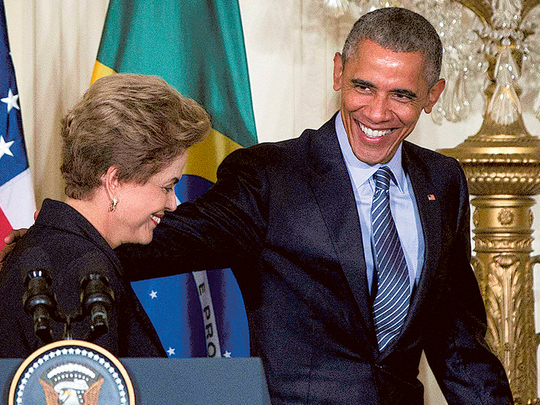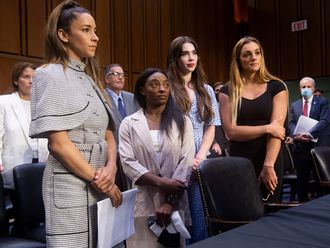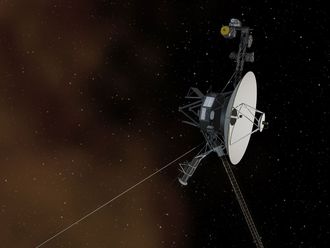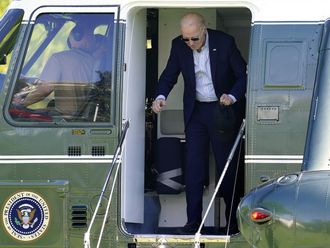
WASHINGTON: US President Barack Obama and Brazil’s Dilma Rousseff traded compliments and vowed to work together on renewable energy on Tuesday, bidding to put a bitter spying row behind them.
The pair met for extensive White House talks, a meeting originally planned for 2013 but scuppered by revelations the National Security Agency eavesdropped on Rousseff’s calls.
Turning on the charm, Obama hailed status-conscious Brazil as not just a regional player but a “global power,” while praising Rousseff as an adept and “reliable partner.”
Rousseff — whose domestic approval ratings are close to single digits — extended an invitation for Obama to visit the 2016 Rio Olympics and indicated the NSA scandal was in the past.
“Some things have changed ... I believe President Obama,” she said when asked about assurances that the United States would no longer spy on leaders in allied countries.
“He has told me that, should he ever need non-public information about Brazil, he would just pick up the phone and call me.”
The 67-year-old Rousseff won re-election just last year but faces mounting difficulties stemming from a faltering economy and a huge corruption scandal at state oil company Petrobras.
In New York, she called on investors to embrace an economy that is the largest in Latin America and the seventh largest in the world — but one that is expected to shrink by about 1.2 per cent this year.
She will hope that playing on the world stage with a US president — who now has approval ratings at about 50 per cent for the first time in years — will provide a much-needed political boost.
The pair rolled out a litany of unoffensive economic, political and military agreements ranging from work on patents to food security in Africa.
But they also unveiled ambitious joint renewable energy targets, hoping to present a collective front ahead of crunch global climate talks later this year.
Obama and Rousseff agreed to create 20 per cent of domestic electricity from non-hydropower renewable sources by 2030 and vowed to fight for an “ambitious” global climate accord.
“These are very ambitious goals, a near tripling for the United States and more than double Brazil’s current output,” said Obama.
Rousseff also vowed to reforest an area the size of England or Pennsylvania by 2030 and embark on the difficult task of achieving a “zero illegal deforestation rate between now and 2030.”
The targets come ahead of UN-sponsored climate talks in Paris in late November and December.
Countries are still arm-wrestling over how to limit global temperature increases to two degrees Celsius.
Each capital is being asked to set their own reduction targets ahead of the meeting.
Obama has pledged to reduce US emissions by 26-28 per cent below 2005 levels by 2025 and was hoping for a similar concrete commitment from Brazil.
Rousseff did not come to Washington with a firm figure, but both countries “committed to reaching an ambitious agreement” at the Paris talks.
In a joint statement, they pledged “strong post-2020 contributions consistent with their determination to show global leadership.”
China, the world’s top CO2 polluter, promised Tuesday that its emissions would peak within about 15 years — a commitment first made late last year during a visit to Beijing by Obama.












